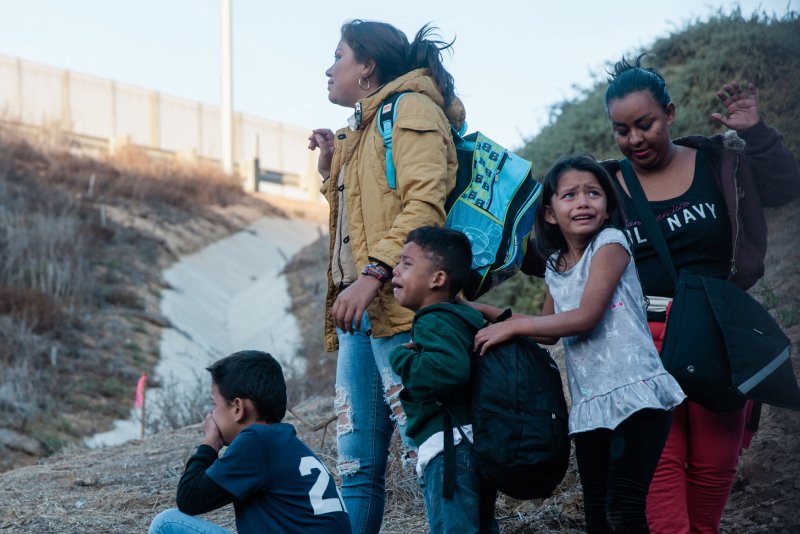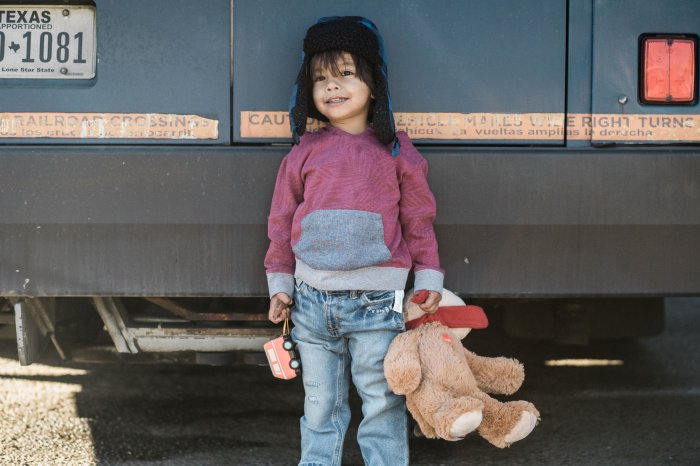A migrant family looks at the border fence that divides the United States and Mexico near Las Playas de Tijuana, Mexico, after jumping the fence to enter the United States at San Ysidro, Calif., on December 2. Photo by Ariana Drehsler/UPI |
License Photo
Dec. 10 (UPI) -- Leaders from 164 countries adopted a global pact Monday to improve the world's response to migration flows, but the United States walked away.
The Global Compact for Safe, Orderly and Regular Migration gives migrants access to basic services and aims to prevent human smuggling through anti-trafficking efforts. It also seeks to eliminate discrimination and safeguard conditions that ensure decent work and facilitate safe and dignified returns.
"The compact only reaffirms that migrants should enjoy human rights and independently of their status," U.N. Secretary-General Antonio Guterres said at the start of a two-day conference in Marrakesh, Morocco, on Monday.
The United States did not support the non-binding pact, which has been in the works for two years. A year ago, the Trump administration said it was "inconsistent with U.S. immigration and refugee policies."
Former Secretary of State Rex Tillerson said at the time, "it is is the primary responsibility of sovereign states to help ensure that migration is safe, orderly and legal."
Other countries that backed out included Australia, Hungary, Austria, Latvia, Poland and the Dominican Republic.
The latest Gallup survey found that 15 percent of the world's adults, about 750 million people, would like to move to another country if they had the opportunity. The survey talked to 453,122 adults in 152 countries from 2015 to 2017. That's up from 13 percent between 2010 and 2012.
The United States remains the top destination for migrants.
The Trump administration took a stand against caravans of Central American migrants who arrived at the border in the last few weeks, deploying the military and threatening to close the border if the groups crossed. At one point, U.S. border officers used tear gas on migrants as they approached the border. Now, thousands of migrants in Tijuana, Mexico, have put their names on a list to start the political asylum process, which could take months.
German Chancellor Angela Merkel supports the pact.
"Migration is a natural phenomenon," Merkel said. "It happens all the time all over the world. If it happens legally, it's a good thing."
Guterres said 80 percent of migrants take safe, orderly routes but still risk death as they cross deserts, oceans and rivers. There's also the risk of falling in with human smugglers, he said.
"Whether their movement is voluntary or forced; and whether or not they have been able to obtain formal authorization for movement, all human beings must have their human rights respected and their dignity upheld," the United Nations head said. "To deny this, and to vilify any group of people, is the road to dehumanization and horror."
Experts say there are 258 million migrants seeking asylum worldwide -- 3 percent of the world's total population. The number could increase from population growth, trade, rising inequality and climate change.
Children of the migrant caravan
<< Show Caption >>
















